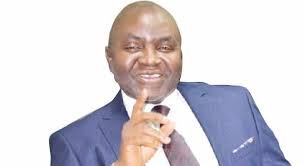The Nigerian Labour Congress (NLC) has expressed skepticism over the credibility of the Nigeria’s unemployment data published by the National Bureau of Statistics (NBS) on Monday, describing the figures as “fiction” and misaligned with the realities of the nation’s economic situation.
The position of the labour group is coming even as the Organised Private Sector (OPS) also criticized the report for failing to reflect the country’s economic conditions.
The statistics agency had, in its ‘Nigeria Labour Force Survey Q2 2024’ report published on its website, reported that Nigeria’s unemployment rate dropped to 4.3% in the second quarter (Q2) of this year from the 5.3% rate recorded in Q1 2024.
The Bureau also disclosed that in the quarter under review, labour force participation rate in the country stood at 79.5%, higher than the 77.3% participation rate recorded in Q1 2024.
However, the NLC and some groups had maintained that the unemployment and labour participation rates did not reflect the economic realities of business closures, rising costs, and diminishing consumer spending.
Commenting on the published data by the NBS, Assistant General Secretary of the NLC, Chris Onyeka, dismissed the unemployment figures as a “voodoo document” and a fabrication, accusing the Bureau of manipulating data to create a false narrative of economic recovery.
He said: “Unemployment cannot be declining when factories are shutting down, manufacturing activity is decreasing, and inventories are rising due to low consumer spending. The reality on the ground paints a grimmer picture.”
The labour leader charged the statistics agency to substantiate its claims on the report by identifying the sectors that were driving job creation during the quarter covered by the report.
Onyeka further accused the NBS of undermining its credibility by publishing statistics disconnected from the lived experiences of Nigerians.
Similarly, President of the Lagos Chamber of Commerce and Industry (LCCI), Gabriel Idahosa, criticized the methodology adopted by the Bureau in conducting the NLFS, describing the reported drop in unemployment rate as a “technical improvement” rather than a reflection of economic realities.
The OPS’ leader pointed out that the current state of the economy, characterized by struggling businesses and dwindling production, did not align with the published unemployment rate data.
In his remarks, Director of the Centre for Promotion of Private Enterprise (CPPE), Dr. Muda Yusuf, also expressed similar concerns about the unemployment rate reported by the NBS, and called for a review of the methodology being used for the NLFS exercise to better reflect the true realities of Nigeria’s job market.
Yusuf, a former Director-General of the Lagos Chamber of Commerce and Industry (LCCI), maintained: “Employment is about making a living. If engagements cannot guarantee a source of livelihood, we shouldn’t consider them as employment.”






